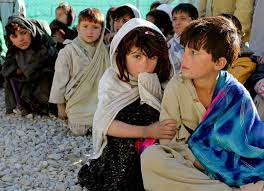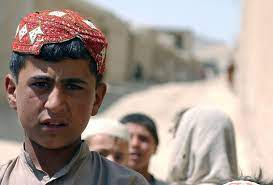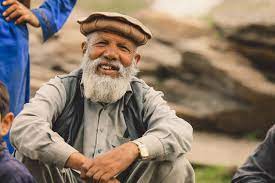
Would You Pray for the Pashtun People of Pakistan?
 The Pashtun people of Pakistan represent a community uniquely guided by the ancient ethical code that is known as Pashtunwali, which can be translated as “Pashtunness” or as some call it, “the way of the Pashtuns.” Pashtunwali principles revolve around hospitality, asylum, revenge, bravery, justice, loyalty, kindness, arbitration, and honor. It is notable that a turban is often considered a symbol of a Pashtun man’s honor or even what westerners might call “chivalry.”
The Pashtun people of Pakistan represent a community uniquely guided by the ancient ethical code that is known as Pashtunwali, which can be translated as “Pashtunness” or as some call it, “the way of the Pashtuns.” Pashtunwali principles revolve around hospitality, asylum, revenge, bravery, justice, loyalty, kindness, arbitration, and honor. It is notable that a turban is often considered a symbol of a Pashtun man’s honor or even what westerners might call “chivalry.”
Tribal affiliations of the Pashtun shape their distinct heritage and intricate social structure dramatically (the Pashtun are often considered the largest Muslim tribal society in the world.) But the Pashto language (sometimes called Pakhtu) is perhaps most central to their identity. The language is facing preservation challenges in the face of globalization, and so outsiders learning Pashto (a rare feat) is a step toward honoring their identity and culture.
Pashtuns are engaged in agriculture, livestock farming, and professions like business, education, and politics. Known as incredibly resilient and adaptable, there are many challenges among the Pashtun, especially in education and healthcare, emphasizing the need for comprehensive development initiatives that some outsiders are assisting with
farming, and professions like business, education, and politics. Known as incredibly resilient and adaptable, there are many challenges among the Pashtun, especially in education and healthcare, emphasizing the need for comprehensive development initiatives that some outsiders are assisting with
The vast majority of the more than 32 million Pashtun of Pakistan follow Sunni Islam, and it is one of the only people groups that is considered to be 0.00% Christian. While there may be isolated Pashtuns who have responded to the Love of Christ, it would be statistically accurate to say there are zero Christian Pashtuns.
 Engaging with the Pashtun unreached people group* would demand understanding their unique social fabric, language, and strategic approaches to their specific challenges. It is possible that sustainable development or other efforts might assist the Pashtun, or other efforts in education, health or infrastructure, and thus provide a platform to show them the love of Christ.
Engaging with the Pashtun unreached people group* would demand understanding their unique social fabric, language, and strategic approaches to their specific challenges. It is possible that sustainable development or other efforts might assist the Pashtun, or other efforts in education, health or infrastructure, and thus provide a platform to show them the love of Christ.
It is interesting to note that the famous William Carey was the first to translate parts of the Old Testament into Pakhto in 1818. This effort was sparked by Carey meeting Pashtun traders in India. Since then, there have been some Christians moving to the area to attempt to introduce the Pashtun to the transformative message of Jesus Christ, but no vibrant, indigenous, disciple-making movement has yet to take root and spread among them. We invite you to pray that it will be so in the future.
*Unreached People Groups (UPG) are communities that lack exposure to the good news of Jesus Christ. Typically situated in remote or culturally isolated regions, these groups encounter formidable obstacles impeding the Gospel’s dissemination, such as linguistic diversity, cultural distinctions, and geographical remoteness. Global Marketplace Multipliers (GMM) is dedicated to spotlighting UPGs, with a particular focus on those exceeding 10 million in population, designated as “Frontier People Groups.” While all unreached people matter to God, and all unreached people groups deserve our strategic attention, these communities are the most unreached populations globally, and so we are spreading awareness about their critical needs.
